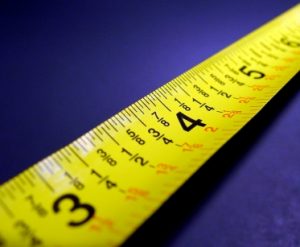Almost Anorexic? One In 20 Have Dangerous ‘Borderline’ Eating Disorders
 Health expert Dr. Jennifer Thomas says that “almost anorexia” is a problem that is going dangerously undetected in modern society.
Health expert Dr. Jennifer Thomas says that “almost anorexia” is a problem that is going dangerously undetected in modern society.
Thomas, an assistant professor of psychology at Harvard, writes about the phenomenon in her upcoming book, Almost Anorexic: Is My (or My Loved One’s) Relationship with Food a Problem?
Five signs of borderline eating disorders
The book explains how many people with borderline eating disorders have an unhealthy obsession with food, eating or calorie counting, but they haven’t crossed over into full-blown eating disorder territory — yet.
Thomas highlights five symptoms of borderline eating disorders, which include restrictive dieting, changes in weight, purging, binge eating and a negative body image. She estimates that about one in 20 people suffers from the condition.
“You probably know someone who’s struggling with it, if not yourself,” Dr. Thomas was quoted as saying in an article on The Daily Mail website.
Help is not on the way
The problem for those suffering from borderline eating disorders is that they don’t often get help because their symptoms don’t match the criteria for traditional conditions like anorexia or bulimia.
Current research shows that these borderline disorders are about five times more common than even anorexia itself, says Thomas, which may induce feelings of isolation, depression or fatigue. Physical symptoms may also pose dangerous health complications.
“Some studies have actually shown that having a subclinical eating disorder actually confers just as high a mortality rate as having a full-syndrome eating disorder,” she said.
Thomas’ book is being published by Hazelden and will be available starting June 23.
Source: Daily Mail
 Eating Disorder Self Test. Take the EAT-26 self test to see if you might have eating disorder symptoms that might require professional evaluation. All answers are confidential.
Eating Disorder Self Test. Take the EAT-26 self test to see if you might have eating disorder symptoms that might require professional evaluation. All answers are confidential.